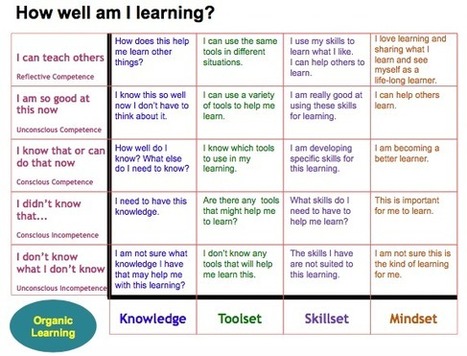We were exploring how to make metacognitive thinking more visible for our students, keeping it aligned with our mandate to keep thinking and learning visible, transparent, tangible, critiqueable and accountable within learning spaces.
Learn more / En savoir plus / Mehr erfahren:
http://www.scoop.it/t/21st-century-learning-and-teaching/?tag=rubric
http://www.scoop.it/t/21st-century-learning-and-teaching/?tag=Criticism
Via Nik Peachey, Gust MEES



 Your new post is loading...
Your new post is loading...














